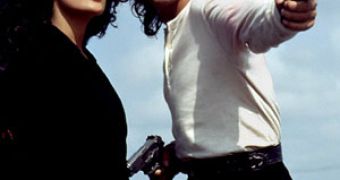The macho, women's idol, is standing all alone and facing whatever problems might come his way - this is the classic image of the heroic male. But what's the reality behind the macho cult, so widespread amongst Mexican-Americans? A new research published in the Journal of Counseling Psychology attempts to come up with an answer to this question.
"Both the academic literature and the popular literature tended to talk about machismo as very negative. Other measurement scales only perpetuated this negative stereotype," said author Miguel Arciniega, an associate professor of counseling and counseling psychology in the Division of Psychology in Education with ASU's Mary Lou Fulton College of Education, himself having been raised in the Mexican-American culture of El Paso, Texas.
The research focused on the traditional dichotomy of the Mexican male culture. On one side, the macho is the stereotype of controlling Mexican-American man, sexist and violent, with an impaired ability to express emotions. On the other side, the caballero is the chivalrous, family loving, nurturing and noble Mexican-American man, endowed with a high capacity of expressing his feelings and solving his problems in a practical manner.
The study was made on a poll in which 403 Mexican-American men of different ages and education levels participated. They completed a questionnaire made of 71 positive and negative statements about masculinity, gathered from traditional Latino stories, folklore and interviews with Mexican-American males, from "real men should never let their guard down" to "men should be affectionate with their children."
"As expected, younger, less-educated men identified more with traditional machismo than caballerismo. However, the hypothesis that older, more educated Mexican-American men would correlate more with caballerismo did not hold true," said co-author Zoila Tovar-Blank, a doctoral candidate.
The study also found that overall satisfaction of life among these categories did not match expectations of lower satisfaction of life.
Caballeros were found to have higher happiness levels, but machos didn't perceive their manly attitude as negative. They rather regarded themselves as individuals standing up for themselves and taking care of their household. Machos also displayed an emotional handicap, being unable to connect with their feelings or denying their existence, a huge issue in many cases in counseling Mexican-American men.
"We felt there must be a difference in coping skills. People who use wishful thinking, not practical problem-solving, were highly connected to traditional machismo. The team's hypothesis correlating traditional machismo to fighting and arrests was confirmed," said Arciniega.
Oppositely, men avoiding fights matched the profile of the caballero. The research also found that individuals adhering stronger to their Mexican ancestry were more prone to be machos, while men more open to other cultural groups were more likely to display caballero behavior.
The core of the poll was made of Mexican-American men, but the subjects included also other Hispanics, like Cubans, Puerto Ricans, Guatemalans, Caribbeans and South Americans.

 14 DAY TRIAL //
14 DAY TRIAL //